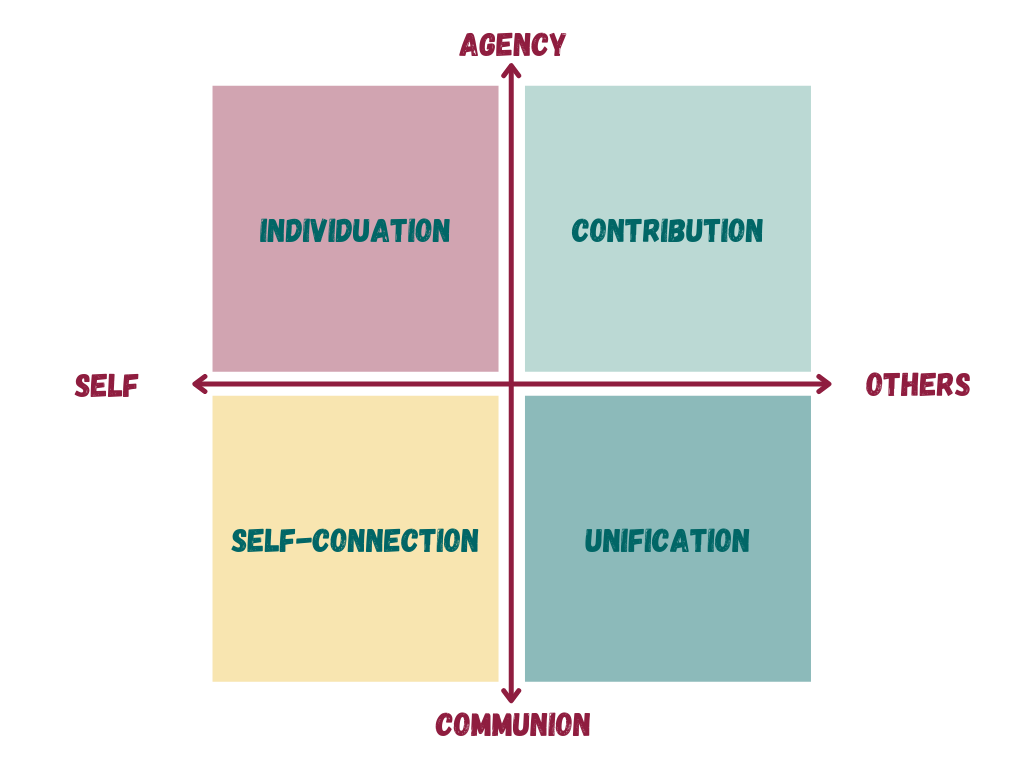
Finding meaning and purpose at work: an empowering perspective
Finding meaning and purpose in work may seem like the holy grail for those unhappy in their job. Employers are understanding that employees need to find some meaning in their day-to-day job and overall professional mission – it helps productivity and talent retention. It is also a trendy topic in psychology research. But what is meaning in work anyway? How do you find it? First things first…
Meaning vs meaningful

We can find meaning in our work, or we can find our work meaningful. Those are two different things. Let’s take a recent example of a viral picture, the lifeguard at the Olympics… This person may feel their job to be meaningless, like many of us sometimes do. They may wonder “why am I here? My job doesn’t add any value to this world. I won’t be saving anyone’s life, so what’s the point? Why doesn’t my boss see I could be of better service doing something else? Why didn’t I do something else with my life?” etc. And yet, this job may still have a meaning to this person, as they may hold on to it thinking “I need this paycheck to feed my family, to have a roof over my head and food on my table” or maybe “this is boring, but I am helping someone who needed me to be doing this today”.
Work always has a meaning
You see, we always find a meaning, or a reason, to have the job we have, whether it’s a positive or a negative one. Maybe it’s just a paycheck, maybe it’s just a transition, maybe it’s our passion, maybe we inherited the family business, etc. The meaning we give it depends on our personal interpretation of our world, our context, our history, and also on our cultural and social values and norms. Once you realize that you have power to re-evaluate the meaning you ascribe to your work, you can gain a certain freedom and serenity. If you don’t like your job and are temporarily stuck in it, you can choose to focus on a positive meaning!
Meaningfulness is the holy grail

Often, when we talk about finding meaning in our work, but we are actually looking to find meaningfulness in our work. Meaningfulness is about significance, usefulness, and positive value. And like meaning, it is a personal evaluation of our work. So what’s the difference? Let’s take our lifeguard at the Olympics again. Imagine, at this competition, suddenly one of the swimmers has a stroke. Our lifeguard jumps in the water and saves the swimmer’s life. Let me tell you, that day, the lifeguard feels their work had the utmost meaningfulness, not only did they get their paycheck, but more importantly, they made a difference in someone else’s life.
Meaningfulness doesn’t have to be limited to brave, selfless, life-saving actions. It doesn’t even have to be about making a difference in someone else’s life, or making a difference in the world… Remember, it’s a personal evaluation of what feels significant and positive, so you have a choice about it. Think about your values and look around, maybe there is a sense of meaningfulness in your work, one you can build on. How can you do that?
Ingredients for meaningful work
Some researchers examined the existing scientific literature on the meaning of work (Rosso et al., 2010), and created a theoretical framework of the four major pathways to meaningful work. There are two main dimensions, or axis, feeding a sense of meaningful work, and this sense is even more powerfully experienced at the intersection of these dimensions. These dimensions are the motives behind our actions. Let’s unpack it, shall we?
Agency-Communion Dimension (vertical axis)
Agency and communion are two fundamentals drive in our human existence. Agency is the motivation to differentiate ourselves, to expand and master, to create, to affirm who we are, what we need and want. It is also our ability to decide for ourselves. And yet, we also are social animals, needing communion, connection, attachment, and uniting.
Self-Others Dimension (horizontal axis)
Our actions can be directed towards our self or others, internal or external, which also affects our perception of the meaningfulness of our work. Both can be equally meaningful and important.

Individuation Pathway
Our actions can be directed towards our self or others, internal or external, which also affects our perception of the meaningfulness of our work. Both can be equally meaningful and important.
Contribution Pathway
Our actions are contributing to something or someone else than ourselves. This is where transcendence, interconnection, and the significance of our personal purpose take place.
Unification Pathway
In this pathway, our actions bring harmony between people or principles. This is the place of belongingness. We drive to connect and unite with others, with a collective, an organization, a higher power.
Self-Connection Pathway
The meaningfulness of actions in this pathway brings us closer into alignment with how we see ourselves. It brings us authenticity, identity affirmation, personal engagement.
The good mix
As you probably guessed by now, you don’t want to be only in one box, you want a little bit of all of them, right? That’s exactly what Rosso and colleagues argued: our work is especially meaningful when we can activate all these pathways. Maybe not equally and all the time. But if we can nourish a little bit of each of these pathways, when we can align our identity and goals, when we feel connected to others, when our work feels purposeful or filling our overall life purpose, when we can feel authentic and coherent, and we can use our skills and abilities, work can feel meaningful, and so can life!
Individuals are the ultimate arbiters of the meaning of their own work, as shaped through the lens of their unique perceptions and experiences. Even on the the other-oriented side of our model, meaningfulness results from the interaction or alignment of the self and other, rather than the other alone.
Rosso and colleagues (2010, p.115)
What does it tell us? What can you do with this?
You see, this framework, and more generally meaningful work, are based on two crucial elements: perception and action. And let me tell you, you have power over both!
You can think about your cultural and social upbringing and environment:
- How have they informed your perception of work?
- Can you challenge it?
- Who/what could inspire a new way to find work meaningfulness?
You can take a look at your current work situation, and see how and where you can find elements feeding these pathways:
- Do you like your organization’s values?
- Do you feel like you belong with (some of) your colleagues?
- Can you be authentic at work?
- Do you feel competent, efficient, skilled at your work?
- Do you feel you are contributing to something (your company’s mission, your team’s wellbeing, making the world a little better, etc.)?
If there is a gap somewhere, you can think about how you can address it: What action can you take?
What’s the meaning of your work? And how can you make it feel more meaningful?
References:
Rosso BD, Dekas KH, Wrzesniewski A (2010) ‘On the meaning of work: A theoretical integration and review’, Research in Organizational Behavior, Vol. 30, pp. 91-127.






